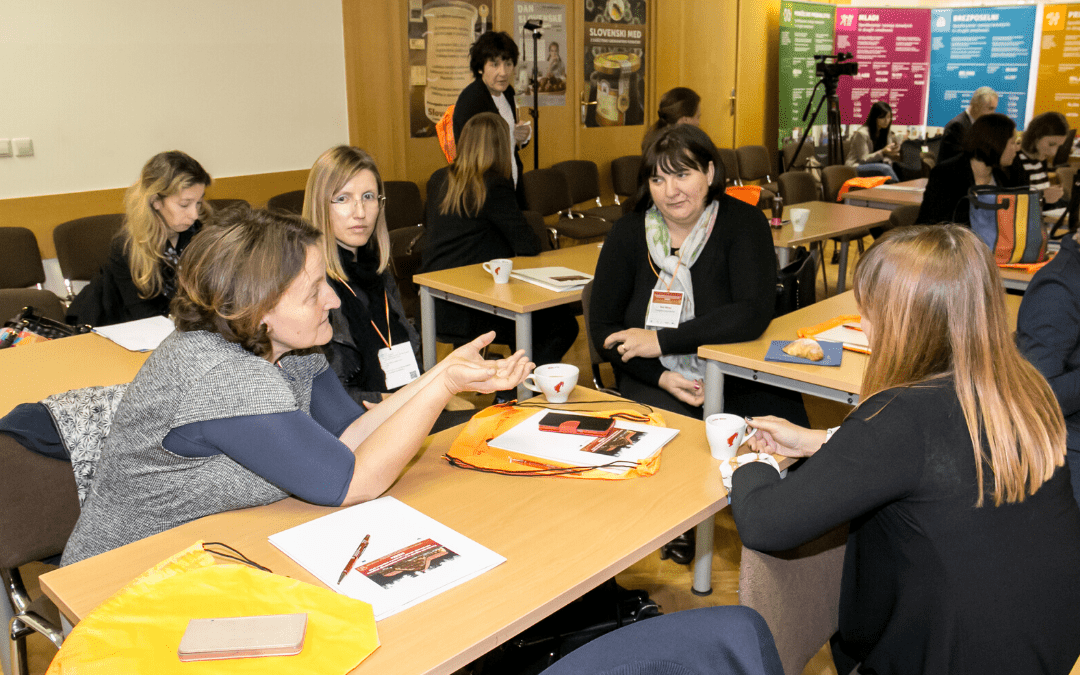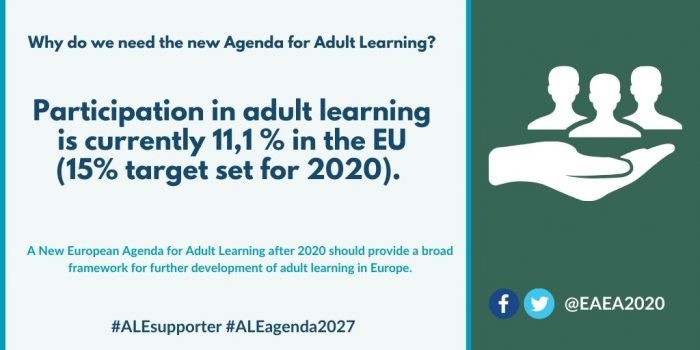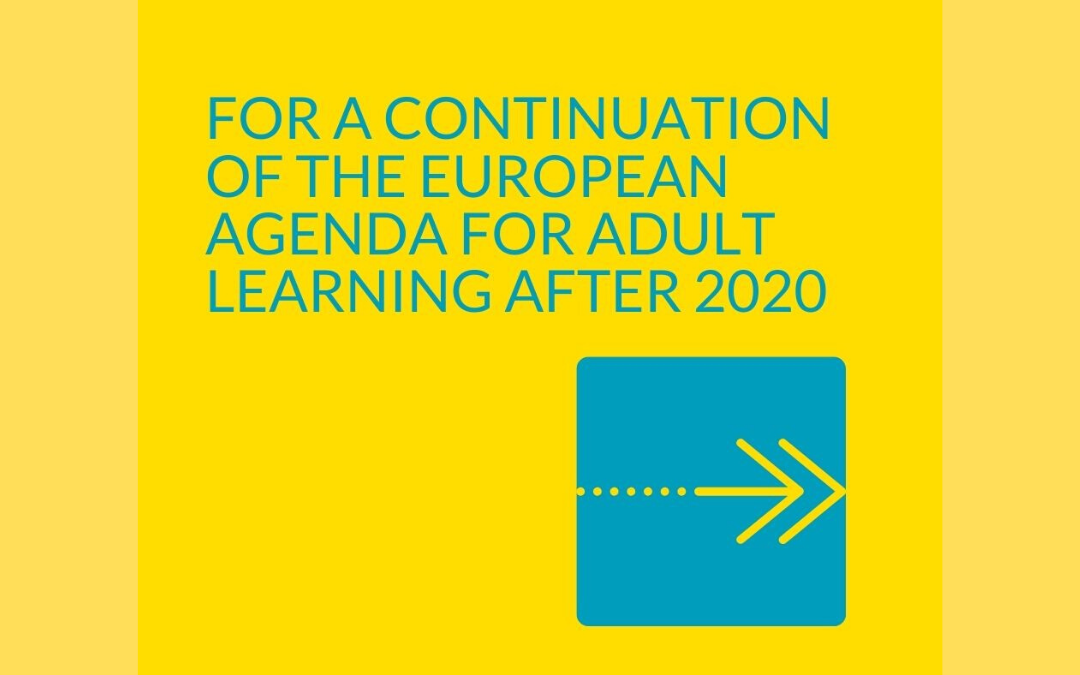I see the European Agenda for Adult Learning – EAAL as the symbol of adult education as it is the only document on the European level that views and treats this field holistically.
In a recent online meeting with some of the members of the association, he emphasised that we must not lose this agenda, which is set to be completed this year. We have lately been receiving messages from the competent unit of the EC that nothing is happening in terms of the overhaul of the existing document (2011) that is otherwise based on the Education and Training 2020 programme (2009). Quite a few consultation processes were devoted to the said overhaul last year, which is why we can probably expect the overhauled version soon. The EC also confirmed last year that efforts will continue within the scope of Upskilling Pathways: New Opportunities for Adults (UP), and some even believe that this means that adult education has thus been fully provided for. But they forget that this initiative is of a narrower nature and is mainly devoted to the acquisition of basic and vocational skills.
An extensive advocacy campaign must be based on partnership
You can read more on the position and proposals of the EAEA relating to the continuation of EAAL on their website. They mainly support the need for a new, powerful agenda based on the recognition of adult education as an independent sector within the education and training system. The document is supposed to continue to cover all aspects of adult education and learning with special emphasis on non-formal education and community learning. In the two issues of the Manifesto for Adult Learning in Europe (2016 and 2019; we would draw attention to Slovenian versions featuring our stories), the EAEA members warned that adult education represents much more than just acquiring basic and vocational skills for work. It affects health and life in general, active citizenship, personal development and much more. In short, it empowers and delights!
They are aware at the EAEA that they will not be propulsive enough without a coordinated “bottom up” campaign featuring pressure and content-based justification from the Member States, which was also confirmed by the mentioned online meeting. They have prepared a sample letter and a communication tool to raise the awareness of various members of the public on the importance of the EAAL. It is up to us to use all of this and thus show that we care.
EAAL has brought about many positives
The improvement of adult education structures and higher level of participation in adult education are the crucial results according to the EAEA, but they do caution about the uneven level of implementation across EU countries. The annual reports of the EAEA ‘Adult Education in Europe 2019 – A Civil Society View‘ testify to the effects of the EAAL to an extent, which is especially true of the most recent two reports. The EC published the Achievements under the Renewed European Agenda on Adult Learning document last year which was prepared in conjunction with the adult education working group for the 2011–2018 period. Interesting content proves that – over the years – adult education has become more recognisable and has attracted more attention from decision-makers, while the adult education systems has adapted more flexibly to national and European challenges. An even more telling indicator is the results of the projects of national EAAL coordinators that have been adapted to the national challenges throughout this period and therefore actually contribute to the transposition of the European strategy into the adult education practice of Member States – subsequently reaching individuals. We regularly notify you of the Slovenian implementations of the EAAL project and its results, and you may perhaps yourself been involved in some of them. Recent publications in both the Spring edition and the present edition of the SIAE Newsletter as well as the EPALE blog (in Slovenian) still have some interesting reading to offer.
We certainly still care about whether adult education will retain its agenda at the European level or not. We should therefore support the advocacy campaign of the EAEA and help implement it in various ways. Let us believe in our success!
Zvonka Pangerc Pahernik, MSc (zvonka.pangerc@acs.si), SIAE



